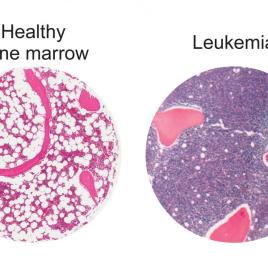Genetic variants associated with the obsessive-compulsive disorder, which affects over 80 million people around the world, have been pinpointed in a new study. Isolating and characterizing such genes may help researchers understand the underlying biology of OCD and develop treatments for this disease. Scientists analyzed sequencing data for 608 candidate genes, and identified four genes strongly associated with OCD in humans. These genes act in neural pathways linked to OCD, including serotonin and glutamate signaling and synaptic connectivity, suggesting potential therapeutic targets.
Authors:
Hyun Ji Noh, Ruqi Tang, Jason Flannick, Colm O’Dushlaine, Ross Swofford, Daniel Howrigan, Diane P. Genereux, Jeremy Johnson, Gerard van Grootheest, Edna Grünblatt, Erik Andersson, Diana R. Djurfeldt, Paresh D. Patel, Michele Koltookian, Christina M. Hultman, Michele T. Pato, Carlos N. Pato, Steven A. Rasmussen, Michael A. Jenike, Gregory L. Hanna, S. Evelyn Stewart, James A. Knowles, Stephan Ruhrmann, Hans-Jörgen Grabe, Michael Wagner, Christian Rück, Carol A. Mathews, Susanne Walitza, Daniëlle C. Cath, Guoping Feng, Elinor K. Karlsson & Kerstin Lindblad-Toh
Corresponding author:
Hyun Ji Noh, Broad Institute of MIT and Harvard, Cambridge, MA, US, Email: noh@broadinstitute.org
Canadian author:
S. Evelyn Stewart, BC Mental Health & Addictions Research Institute, UBC, Vancouver, BC, Email: evelyn.stewart@ubc.ca
Original paper published in Nature Communications on October 17, 2017.

